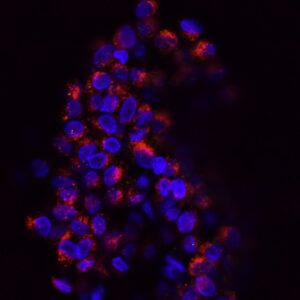 A new study published in JAMA could lead more Black women to seek breast cancer screenings at a younger age.
A new study published in JAMA could lead more Black women to seek breast cancer screenings at a younger age.
The international study found that more research is needed to determine whether screening guidelines for Black women should lower the recommended age to 42. Currently, women from all ethnicities should start getting biennial screenings starting at the age of 50. The 8-year gap could save thousands of lives per year.
Black Women and Breast Cancer
There’s already substantial evidence that Black women face considerable hurdles when it comes to diagnosing and treating breast cancer. Black women have a 4% lower incidence rate of breast cancer compared to White women, yet suffer a cancer death rate 40% higher.
Important health institutions, including the American Cancer Society, already recommend Black women should start screenings at the age of 40. Of course, access to screenings also requires access to healthcare insurance. Some policies may deem the screening procedures optional and refuse to cover them.
Read More: Breast Cancer FAQs and Statistics
Current Breast Screening Guidelines
Most breast cancer screenings rely on a mammogram, which is an X-ray that can spot the initial stages of tumor development. The US Prevention Services Task Force, a non-governmental body that provides recommendations to clinicians and provides, currently recommends these procedures start at the age 50.
While other entities recommend annual mammograms at the age of 40, the guidelines are a generalization that doesn’t account for ethnic variables. The American Cancer Society and others are in the process of updating their recommendations to better account for racial and ethnic differences, which could reduce the wide gap in cancer outcomes.
Breast Cancer Risk: Who Is Most at Risk?
Breast cancer deaths among Black women in their 40s is around 27 deaths per 100,000. In comparison, 15 White women per 100,000 die of breast cancer in their 40s.
The general female population’s breast cancer mortality death rate increases to 0.329% in their 50s. Researchers found that Black women reach the same risk level, on average, by around age 42, nearly a decade before the general population. Early screenings could identify tumors and accelerate treatments, closing the outsized gap in cancer mortality Black women currently face.
Systemic Inequality Takes a Toll
There’s more to the breast cancer issue than race or genetics. Black women are just as likely as White women to schedule their mammograms on time, with roughly 3 in 4 women making their annual appointments. However, Black women are less likely to be given places in clinical trials, which can provide access to more innovative and effective treatments.
Black women also have reduced access to care. Black Americans are nearly twice as likely to be uninsured than White Americans, and that difference is getting worse as politics erodes the viability of the American Care Act.
Access to Healthcare Matters
Access to affordable, equitable healthcare can save countless lives and address the racial inequality we’ve seen for decades in breast cancer. Support expanded access to care for all Americans and be a part of the Less Cancer mission; donate today.

Leave A Comment
You must be logged in to post a comment.